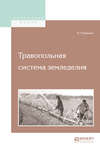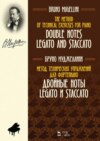Читать книгу: «The Black Tulip»
Chapter 1. A Grateful People
On the 20th of August, 1672, the city of the Hague, always so lively, so neat, and so trim that one might believe every day to be Sunday, with its shady park, with its tall trees, spreading over its Gothic houses, with its canals like large mirrors, in which its steeples and its almost Eastern cupolas are reflected, – the city of the Hague, the capital of the Seven United Provinces, was swelling in all its arteries with a black and red stream of hurried, panting, and restless citizens, who, with their knives in their girdles, muskets on their shoulders, or sticks in their hands, were pushing on to the Buytenhof, a terrible prison, the grated windows of which are still shown, where, on the charge of attempted murder preferred against him by the surgeon Tyckelaer, Cornelius de Witt, the brother of the Grand Pensionary of Holland was confined.
If the history of that time, and especially that of the year in the middle of which our narrative commences, were not indissolubly connected with the two names just mentioned, the few explanatory pages which we are about to add might appear quite supererogatory; but we will, from the very first, apprise the reader – our old friend, to whom we are wont on the first page to promise amusement, and with whom we always try to keep our word as well as is in our power – that this explanation is as indispensable to the right understanding of our story as to that of the great event itself on which it is based.
Cornelius de Witt, Ruart de Pulten, that is to say, warden of the dikes, ex-burgomaster of Dort, his native town, and member of the Assembly of the States of Holland, was forty-nine years of age, when the Dutch people, tired of the Republic such as John de Witt, the Grand Pensionary of Holland, understood it, at once conceived a most violent affection for the Stadtholderate, which had been abolished for ever in Holland by the “Perpetual Edict” forced by John de Witt upon the United Provinces.
As it rarely happens that public opinion, in its whimsical flights, does not identify a principle with a man, thus the people saw the personification of the Republic in the two stern figures of the brothers De Witt, those Romans of Holland, spurning to pander to the fancies of the mob, and wedding themselves with unbending fidelity to liberty without licentiousness, and prosperity without the waste of superfluity; on the other hand, the Stadtholderate recalled to the popular mind the grave and thoughtful image of the young Prince William of Orange.
The brothers De Witt humoured Louis XIV., whose moral influence was felt by the whole of Europe, and the pressure of whose material power Holland had been made to feel in that marvellous campaign on the Rhine, which, in the space of three months, had laid the power of the United Provinces prostrate.
Louis XIV. had long been the enemy of the Dutch, who insulted or ridiculed him to their hearts’ content, although it must be said that they generally used French refugees for the mouthpiece of their spite. Their national pride held him up as the Mithridates of the Republic. The brothers De Witt, therefore, had to strive against a double difficulty, – against the force of national antipathy, and, besides, against the feeling of weariness which is natural to all vanquished people, when they hope that a new chief will be able to save them from ruin and shame.
This new chief, quite ready to appear on the political stage, and to measure himself against Louis XIV., however gigantic the fortunes of the Grand Monarch loomed in the future, was William, Prince of Orange, son of William II., and grandson, by his mother Henrietta Stuart, of Charles I. of England. We have mentioned him before as the person by whom the people expected to see the office of Stadtholder restored.
This young man was, in 1672, twenty-two years of age. John de Witt, who was his tutor, had brought him up with the view of making him a good citizen. Loving his country better than he did his disciple, the master had, by the Perpetual Edict, extinguished the hope which the young Prince might have entertained of one day becoming Stadtholder. But God laughs at the presumption of man, who wants to raise and prostrate the powers on earth without consulting the King above; and the fickleness and caprice of the Dutch combined with the terror inspired by Louis XIV., in repealing the Perpetual Edict, and re-establishing the office of Stadtholder in favour of William of Orange, for whom the hand of Providence had traced out ulterior destinies on the hidden map of the future.
The Grand Pensionary bowed before the will of his fellow citizens; Cornelius de Witt, however, was more obstinate, and notwithstanding all the threats of death from the Orangist rabble, who besieged him in his house at Dort, he stoutly refused to sign the act by which the office of Stadtholder was restored. Moved by the tears and entreaties of his wife, he at last complied, only adding to his signature the two letters V. C. (Vi Coactus), notifying thereby that he only yielded to force.
It was a real miracle that on that day he escaped from the doom intended for him.
John de Witt derived no advantage from his ready compliance with the wishes of his fellow citizens. Only a few days after, an attempt was made to stab him, in which he was severely although not mortally wounded.
This by no means suited the views of the Orange faction. The life of the two brothers being a constant obstacle to their plans, they changed their tactics, and tried to obtain by calumny what they had not been able to effect by the aid of the poniard.
How rarely does it happen that, in the right moment, a great man is found to head the execution of vast and noble designs; and for that reason, when such a providential concurrence of circumstances does occur, history is prompt to record the name of the chosen one, and to hold him up to the admiration of posterity. But when Satan interposes in human affairs to cast a shadow upon some happy existence, or to overthrow a kingdom, it seldom happens that he does not find at his side some miserable tool, in whose ear he has but to whisper a word to set him at once about his task.
The wretched tool who was at hand to be the agent of this dastardly plot was one Tyckelaer whom we have already mentioned, a surgeon by profession.
He lodged an information against Cornelius de Witt, setting forth that the warden – who, as he had shown by the letters added to his signature, was fuming at the repeal of the Perpetual Edict – had, from hatred against William of Orange, hired an assassin to deliver the new Republic of its new Stadtholder; and he, Tyckelaer was the person thus chosen; but that, horrified at the bare idea of the act which he was asked to perpetrate, he had preferred rather to reveal the crime than to commit it.
This disclosure was, indeed, well calculated to call forth a furious outbreak among the Orange faction. The Attorney General caused, on the 16th of August, 1672, Cornelius de Witt to be arrested; and the noble brother of John de Witt had, like the vilest criminal, to undergo, in one of the apartments of the town prison, the preparatory degrees of torture, by means of which his judges expected to force from him the confession of his alleged plot against William of Orange.
But Cornelius was not only possessed of a great mind, but also of a great heart. He belonged to that race of martyrs who, indissolubly wedded to their political convictions as their ancestors were to their faith, are able to smile on pain: while being stretched on the rack, he recited with a firm voice, and scanning the lines according to measure, the first strophe of the “Justum ac tenacem” of Horace, and, making no confession, tired not only the strength, but even the fanaticism, of his executioners.
The judges, notwithstanding, acquitted Tyckelaer from every charge; at the same time sentencing Cornelius to be deposed from all his offices and dignities; to pay all the costs of the trial; and to be banished from the soil of the Republic for ever.
This judgment against not only an innocent, but also a great man, was indeed some gratification to the passions of the people, to whose interests Cornelius de Witt had always devoted himself: but, as we shall soon see, it was not enough.
The Athenians, who indeed have left behind them a pretty tolerable reputation for ingratitude, have in this respect to yield precedence to the Dutch. They, at least in the case of Aristides, contented themselves with banishing him.
John de Witt, at the first intimation of the charge brought against his brother, had resigned his office of Grand Pensionary. He too received a noble recompense for his devotedness to the best interests of his country, taking with him into the retirement of private life the hatred of a host of enemies, and the fresh scars of wounds inflicted by assassins, only too often the sole guerdon obtained by honest people, who are guilty of having worked for their country, and of having forgotten their own private interests.
In the meanwhile William of Orange urged on the course of events by every means in his power, eagerly waiting for the time when the people, by whom he was idolised, should have made of the bodies of the brothers the two steps over which he might ascend to the chair of Stadtholder.
Thus, then, on the 20th of August, 1672, as we have already stated in the beginning of this chapter, the whole town was crowding towards the Buytenhof, to witness the departure of Cornelius de Witt from prison, as he was going to exile; and to see what traces the torture of the rack had left on the noble frame of the man who knew his Horace so well.
Yet all this multitude was not crowding to the Buytenhof with the innocent view of merely feasting their eyes with the spectacle; there were many who went there to play an active part in it, and to take upon themselves an office which they conceived had been badly filled, – that of the executioner.
There were, indeed, others with less hostile intentions. All that they cared for was the spectacle, always so attractive to the mob, whose instinctive pride is flattered by it, – the sight of greatness hurled down into the dust.
“Has not,” they would say, “this Cornelius de Witt been locked up and broken by the rack? Shall we not see him pale, streaming with blood, covered with shame?” And was not this a sweet triumph for the burghers of the Hague, whose envy even beat that of the common rabble; a triumph in which every honest citizen and townsman might be expected to share?
“Moreover,” hinted the Orange agitators interspersed through the crowd, whom they hoped to manage like a sharp-edged and at the same time crushing instrument, – “moreover, will there not, from the Buytenhof to the gate of the town, a nice little opportunity present itself to throw some handfuls of dirt, or a few stones, at this Cornelius de Witt, who not only conferred the dignity of Stadtholder on the Prince of Orange merely vi coactus, but who also intended to have him assassinated?”
“Besides which,” the fierce enemies of France chimed in, “if the work were done well and bravely at the Hague, Cornelius would certainly not be allowed to go into exile, where he will renew his intrigues with France, and live with his big scoundrel of a brother, John, on the gold of the Marquis de Louvois.”
Being in such a temper, people generally will run rather than walk; which was the reason why the inhabitants of the Hague were hurrying so fast towards the Buytenhof.
Honest Tyckelaer, with a heart full of spite and malice, and with no particular plan settled in his mind, was one of the foremost, being paraded about by the Orange party like a hero of probity, national honour, and Christian charity.
This daring miscreant detailed, with all the embellishments and flourishes suggested by his base mind and his ruffianly imagination, the attempts which he pretended Cornelius de Witt had made to corrupt him; the sums of money which were promised, and all the diabolical stratagems planned beforehand to smooth for him, Tyckelaer, all the difficulties in the path of murder.
And every phase of his speech, eagerly listened to by the populace, called forth enthusiastic cheers for the Prince of Orange, and groans and imprecations of blind fury against the brothers De Witt.
The mob even began to vent its rage by inveighing against the iniquitous judges, who had allowed such a detestable criminal as the villain Cornelius to get off so cheaply.
Some of the agitators whispered, “He will be off, he will escape from us!”
Others replied, “A vessel is waiting for him at Schevening, a French craft. Tyckelaer has seen her.”
“Honest Tyckelaer! Hurrah for Tyckelaer!” the mob cried in chorus.
“And let us not forget,” a voice exclaimed from the crowd, “that at the same time with Cornelius his brother John, who is as rascally a traitor as himself, will likewise make his escape.”
“And the two rogues will in France make merry with our money, with the money for our vessels, our arsenals, and our dockyards, which they have sold to Louis XIV.”
“Well, then, don’t let us allow them to depart!” advised one of the patriots who had gained the start of the others.
“Forward to the prison, to the prison!” echoed the crowd.
Amid these cries, the citizens ran along faster and faster, cocking their muskets, brandishing their hatchets, and looking death and defiance in all directions.
No violence, however, had as yet been committed; and the file of horsemen who were guarding the approaches of the Buytenhof remained cool, unmoved, silent, much more threatening in their impassibility than all this crowd of burghers, with their cries, their agitation, and their threats. The men on their horses, indeed, stood like so many statues, under the eye of their chief, Count Tilly, the captain of the mounted troops of the Hague, who had his sword drawn, but held it with its point downwards, in a line with the straps of his stirrup.
This troop, the only defence of the prison, overawed by its firm attitude not only the disorderly riotous mass of the populace, but also the detachment of the burgher guard, which, being placed opposite the Buytenhof to support the soldiers in keeping order, gave to the rioters the example of seditious cries, shouting, —
“Hurrah for Orange! Down with the traitors!”
The presence of Tilly and his horsemen, indeed, exercised a salutary check on these civic warriors; but by degrees they waxed more and more angry by their own shouts, and as they were not able to understand how any one could have courage without showing it by cries, they attributed the silence of the dragoons to pusillanimity, and advanced one step towards the prison, with all the turbulent mob following in their wake.
In this moment, Count Tilly rode forth towards them single-handed, merely lifting his sword and contracting his brow whilst he addressed them: —
“Well, gentlemen of the burgher guard, what are you advancing for, and what do you wish?”
The burghers shook their muskets, repeating their cry, —
“Hurrah for Orange! Death to the traitors!”
“‘Hurrah for Orange!’ all well and good!” replied Tilly, “although I certainly am more partial to happy faces than to gloomy ones. ‘Death to the traitors!’ as much of it as you like, as long as you show your wishes only by cries. But, as to putting them to death in good earnest, I am here to prevent that, and I shall prevent it.”
Then, turning round to his men, he gave the word of command, —
“Soldiers, ready!”
The troopers obeyed orders with a precision which immediately caused the burgher guard and the people to fall back, in a degree of confusion which excited the smile of the cavalry officer.
“Holloa!” he exclaimed, with that bantering tone which is peculiar to men of his profession; “be easy, gentlemen, my soldiers will not fire a shot; but, on the other hand, you will not advance by one step towards the prison.”
“And do you know, sir, that we have muskets?” roared the commandant of the burghers.
“I must know it, by Jove, you have made them glitter enough before my eyes; but I beg you to observe also that we on our side have pistols, that the pistol carries admirably to a distance of fifty yards, and that you are only twenty-five from us.”
“Death to the traitors!” cried the exasperated burghers.
“Go along with you,” growled the officer, “you always cry the same thing over again. It is very tiresome.”
With this, he took his post at the head of his troops, whilst the tumult grew fiercer and fiercer about the Buytenhof.
And yet the fuming crowd did not know that, at that very moment when they were tracking the scent of one of their victims, the other, as if hurrying to meet his fate, passed, at a distance of not more than a hundred yards, behind the groups of people and the dragoons, to betake himself to the Buytenhof.
John de Witt, indeed, had alighted from his coach with his servant, and quietly walked across the courtyard of the prison.
Mentioning his name to the turnkey, who however knew him, he said, —
“Good morning, Gryphus; I am coming to take away my brother, who, as you know, is condemned to exile, and to carry him out of the town.”
Whereupon the jailer, a sort of bear, trained to lock and unlock the gates of the prison, had greeted him and admitted him into the building, the doors of which were immediately closed again.
Ten yards farther on, John de Witt met a lovely young girl, of about seventeen or eighteen, dressed in the national costume of the Frisian women, who, with pretty demureness, dropped a curtesy to him. Chucking her under the chin, he said to her, —
“Good morning, my good and fair Rosa; how is my brother?”
“Oh, Mynheer John!” the young girl replied, “I am not afraid of the harm which has been done to him. That’s all over now.”
“But what is it you are afraid of?”
“I am afraid of the harm which they are going to do to him.”
“Oh, yes,” said De Witt, “you mean to speak of the people down below, don’t you?”
“Do you hear them?”
“They are indeed in a state of great excitement; but when they see us perhaps they will grow calmer, as we have never done them anything but good.”
“That’s unfortunately no reason, except for the contrary,” muttered the girl, as, on an imperative sign from her father, she withdrew.
“Indeed, child, what you say is only too true.”
Then, in pursuing his way, he said to himself, —
“Here is a damsel who very likely does not know how to read, who consequently has never read anything, and yet with one word she has just told the whole history of the world.”
And with the same calm mien, but more melancholy than he had been on entering the prison, the Grand Pensionary proceeded towards the cell of his brother.
Chapter 2. The Two Brothers
As the fair Rosa, with foreboding doubt, had foretold, so it happened. Whilst John de Witt was climbing the narrow winding stairs which led to the prison of his brother Cornelius, the burghers did their best to have the troop of Tilly, which was in their way, removed.
Seeing this disposition, King Mob, who fully appreciated the laudable intentions of his own beloved militia, shouted most lustily, —
“Hurrah for the burghers!”
As to Count Tilly, who was as prudent as he was firm, he began to parley with the burghers, under the protection of the cocked pistols of his dragoons, explaining to the valiant townsmen, that his order from the States commanded him to guard the prison and its approaches with three companies.
“Wherefore such an order? Why guard the prison?” cried the Orangists.
“Stop,” replied the Count, “there you at once ask me more than I can tell you. I was told, ‘Guard the prison,’ and I guard it. You, gentlemen, who are almost military men yourselves, you are aware that an order must never be gainsaid.”
“But this order has been given to you that the traitors may be enabled to leave the town.”
“Very possibly, as the traitors are condemned to exile,” replied Tilly.
“But who has given this order?”
“The States, to be sure!”
“The States are traitors.”
“I don’t know anything about that!”
“And you are a traitor yourself!”
“I?”
“Yes, you.”
“Well, as to that, let us understand each other gentlemen. Whom should I betray? The States? Why, I cannot betray them, whilst, being in their pay, I faithfully obey their orders.”
As the Count was so indisputably in the right that it was impossible to argue against him, the mob answered only by redoubled clamour and horrible threats, to which the Count opposed the most perfect urbanity.
“Gentlemen,” he said, “uncock your muskets, one of them may go off by accident; and if the shot chanced to wound one of my men, we should knock over a couple of hundreds of yours, for which we should, indeed, be very sorry, but you even more so; especially as such a thing is neither contemplated by you nor by myself.”
“If you did that,” cried the burghers, “we should have a pop at you, too.”
“Of course you would; but suppose you killed every man Jack of us, those whom we should have killed would not, for all that, be less dead.”
“Then leave the place to us, and you will perform the part of a good citizen.”
“First of all,” said the Count, “I am not a citizen, but an officer, which is a very different thing; and secondly, I am not a Hollander, but a Frenchman, which is more different still. I have to do with no one but the States, by whom I am paid; let me see an order from them to leave the place to you, and I shall only be too glad to wheel off in an instant, as I am confoundedly bored here.”
“Yes, yes!” cried a hundred voices; the din of which was immediately swelled by five hundred others; “let us march to the Town-hall; let us go and see the deputies! Come along! come along!”
“That’s it,” Tilly muttered between his teeth, as he saw the most violent among the crowd turning away; “go and ask for a meanness at the Town-hall, and you will see whether they will grant it; go, my fine fellows, go!”
The worthy officer relied on the honour of the magistrates, who, on their side, relied on his honour as a soldier.
“I say, Captain,” the first lieutenant whispered into the ear of the Count, “I hope the deputies will give these madmen a flat refusal; but, after all, it would do no harm if they would send us some reinforcement.”
In the meanwhile, John de Witt, whom we left climbing the stairs, after the conversation with the jailer Gryphus and his daughter Rosa, had reached the door of the cell, where on a mattress his brother Cornelius was resting, after having undergone the preparatory degrees of the torture. The sentence of banishment having been pronounced, there was no occasion for inflicting the torture extraordinary.
Cornelius was stretched on his couch, with broken wrists and crushed fingers. He had not confessed a crime of which he was not guilty; and now, after three days of agony, he once more breathed freely, on being informed that the judges, from whom he had expected death, were only condemning him to exile.
Endowed with an iron frame and a stout heart, how would he have disappointed his enemies if they could only have seen, in the dark cell of the Buytenhof, his pale face lit up by the smile of the martyr, who forgets the dross of this earth after having obtained a glimpse of the bright glory of heaven.
The warden, indeed, had already recovered his full strength, much more owing to the force of his own strong will than to actual aid; and he was calculating how long the formalities of the law would still detain him in prison.
This was just at the very moment when the mingled shouts of the burgher guard and of the mob were raging against the two brothers, and threatening Captain Tilly, who served as a rampart to them. This noise, which roared outside of the walls of the prison, as the surf dashing against the rocks, now reached the ears of the prisoner.
But, threatening as it sounded, Cornelius appeared not to deem it worth his while to inquire after its cause; nor did he get up to look out of the narrow grated window, which gave access to the light and to the noise of the world without.
He was so absorbed in his never-ceasing pain that it had almost become a habit with him. He felt with such delight the bonds which connected his immortal being with his perishable frame gradually loosening, that it seemed to him as if his spirit, freed from the trammels of the body, were hovering above it, like the expiring flame which rises from the half-extinguished embers.
He also thought of his brother; and whilst the latter was thus vividly present to his mind the door opened, and John entered, hurrying to the bedside of the prisoner, who stretched out his broken limbs and his hands tied up in bandages towards that glorious brother, whom he now excelled, not in services rendered to the country, but in the hatred which the Dutch bore him.
John tenderly kissed his brother on the forehead, and put his sore hands gently back on the mattress.
“Cornelius, my poor brother, you are suffering great pain, are you not?”
“I am suffering no longer, since I see you, my brother.”
“Oh, my poor dear Cornelius! I feel most wretched to see you in such a state.”
“And, indeed, I have thought more of you than of myself; and whilst they were torturing me, I never thought of uttering a complaint, except once, to say, ‘Poor brother!’ But now that you are here, let us forget all. You are coming to take me away, are you not?”
“I am.”
“I am quite healed; help me to get up, and you shall see how I can walk.”
“You will not have to walk far, as I have my coach near the pond, behind Tilly’s dragoons.”
“Tilly’s dragoons! What are they near the pond for?”
“Well,” said the Grand Pensionary with a melancholy smile which was habitual to him, “the gentlemen at the Town-hall expect that the people at the Hague would like to see you depart, and there is some apprehension of a tumult.”
“Of a tumult?” replied Cornelius, fixing his eyes on his perplexed brother; “a tumult?”
“Yes, Cornelius.”
“Oh! that’s what I heard just now,” said the prisoner, as if speaking to himself. Then, turning to his brother, he continued, —
“Are there many persons down before the prison.”
“Yes, my brother, there are.”
“But then, to come here to me – ”
“Well?”
“How is it that they have allowed you to pass?”
“You know well that we are not very popular, Cornelius,” said the Grand Pensionary, with gloomy bitterness. “I have made my way through all sorts of bystreets and alleys.”
“You hid yourself, John?”
“I wished to reach you without loss of time, and I did what people will do in politics, or on the sea when the wind is against them, – I tacked.”
At this moment the noise in the square below was heard to roar with increasing fury. Tilly was parleying with the burghers.
“Well, well,” said Cornelius, “you are a very skilful pilot, John; but I doubt whether you will as safely guide your brother out of the Buytenhof in the midst of this gale, and through the raging surf of popular hatred, as you did the fleet of Van Tromp past the shoals of the Scheldt to Antwerp.”
“With the help of God, Cornelius, we’ll at least try,” answered John; “but, first of all, a word with you.”
“Speak!”
The shouts began anew.
“Hark, hark!” continued Cornelius, “how angry those people are! Is it against you, or against me?”
“I should say it is against us both, Cornelius. I told you, my dear brother, that the Orange party, while assailing us with their absurd calumnies, have also made it a reproach against us that we have negotiated with France.”
“What blockheads they are!”
“But, indeed, they reproach us with it.”
“And yet, if these negotiations had been successful, they would have prevented the defeats of Rees, Orsay, Wesel, and Rheinberg; the Rhine would not have been crossed, and Holland might still consider herself invincible in the midst of her marshes and canals.”
“All this is quite true, my dear Cornelius, but still more certain it is, that if at this moment our correspondence with the Marquis de Louvois were discovered, skilful pilot as I am, I should not be able to save the frail barque which is to carry the brothers De Witt and their fortunes out of Holland. That correspondence, which might prove to honest people how dearly I love my country, and what sacrifices I have offered to make for its liberty and glory, would be ruin to us if it fell into the hands of the Orange party. I hope you have burned the letters before you left Dort to join me at the Hague.”
“My dear brother,” Cornelius answered, “your correspondence with M. de Louvois affords ample proof of your having been of late the greatest, most generous, and most able citizen of the Seven United Provinces. I rejoice in the glory of my country; and particularly do I rejoice in your glory, John. I have taken good care not to burn that correspondence.”
“Then we are lost, as far as this life is concerned,” quietly said the Grand Pensionary, approaching the window.
“No, on the contrary, John, we shall at the same time save our lives and regain our popularity.”
“But what have you done with these letters?”
“I have intrusted them to the care of Cornelius van Baerle, my godson, whom you know, and who lives at Dort.”
“Poor honest Van Baerle! who knows so much, and yet thinks of nothing but of flowers and of God who made them. You have intrusted him with this fatal secret; it will be his ruin, poor soul!”
“His ruin?”
“Yes, for he will either be strong or he will be weak. If he is strong, he will, when he hears of what has happened to us, boast of our acquaintance; if he is weak, he will be afraid on account of his connection with us: if he is strong, he will betray the secret by his boldness; if he is weak, he will allow it to be forced from him. In either case he is lost, and so are we. Let us, therefore, fly, fly, as long as there is still time.”
Cornelius de Witt, raising himself on his couch, and grasping the hand of his brother, who shuddered at the touch of his linen bandages, replied, —
“Do not I know my godson? have not I been enabled to read every thought in Van Baerle’s mind, and every sentiment in his heart? You ask whether he is strong or weak. He is neither the one nor the other; but that is not now the question. The principal point is, that he is sure not to divulge the secret, for the very good reason that he does not know it himself.”
Покупайте книги и получайте бонусы в Литрес, Читай-городе и Буквоеде.
Участвовать в бонусной программе




















